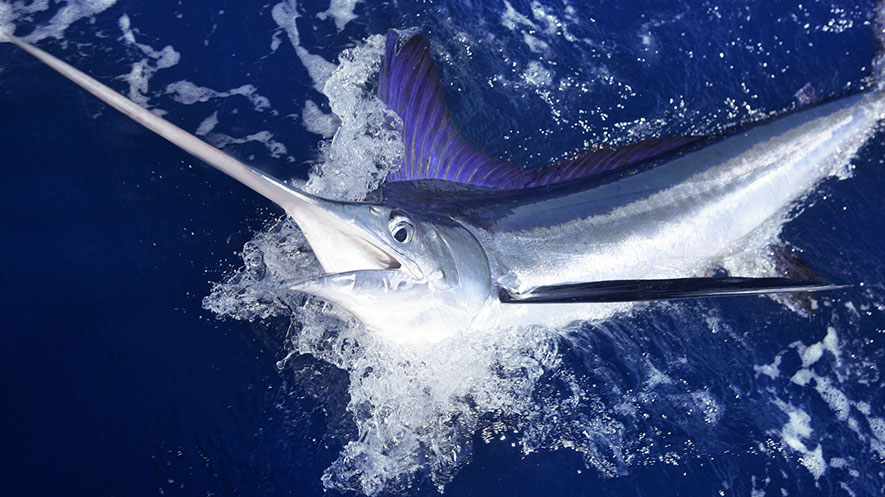According to the Nassau Guardian, the government of the Bahamas has decided to nix talks with China to split fishing rights in waters east of Florida.
The proposal could have brought $2.1 billion in cash, along with agricultural and farming equipment, into the Bahamian economy, over 10 years, but many observers were concerned that the resulting commercial fishing would permanently devastate vulnerable habitat and decimate fish populations. Following two weeks of outcry from Bahamian citizens, environmental groups, tourism officials, fishing organizations, recreational anglers and even the Florida Fish and Wildlife Conservation Commission, the Guardian reported on 22 November 2016 the deal may actually be a "no-go."
According to the Guardian, Bahamian prime minister Perry Christie told the House of Assembly that the deal is essentially dead. He added that the deal would have been voted down by the cabinet if it had been raised.
Earlier in November. Florida wildlife officials expressed concern over the potential deal, State Fish and Wildlife Conservation Commission Executive Director Nick Wiley said the potential deal, as reported, could impact Florida's commercial and sport-fishing industries.
"China, their interests in this, would get exclusive access to fisheries in Bahamian waters," Wiley said. "A lot of people may not realize this, but the boundary between the United States waters and Bahamian waters is still in dispute. It's still not been clarified, so that further makes this an issue."
The government of the Bahamas did not released details of the negotiations, but the Nassau Guardian newspaper reported that the proposal states: "While realization of a reasonable return on an investment in agriculture is a relatively slow process, requiring substantial capitalization over many years, participating companies in the initiative will within months of commencement of operations realize positive cash flow from the sale of seafood."
Under the reported terms of the deal, the government would lease to 100 companies — each jointly owned by Chinese and Bahamians shareholders — 10,000 acres in Andros Island, along with fishing licenses.
"It is anticipated that the agricultural products and the seafood will be used either for local consumption or will be exported to China or the U.S.A. for sale," the proposal says. "The management of participating companies will resolve to do what is in their best interest."
Commercial fishing for conch, lobster, snapper and grouper are mainstays of the Andros Island's economy. However, the indication is that the Chinese firms want to target dolphin, kingfish, marlin, tuna and wahoo.
Columnist Ed Killer of the TC Palm newspapers, an advocate for Florida fisherman and expert on Bahamian waters, wrote, “ . . . what Chinese interests were paying for were exemption from regulation and enforcement. The cash-strapped Bahamian government already struggles to enforce laws against illegal fishing, human trafficking and drug smuggling. Can anyone envision the Royal Defence Force boarding a factory fishing ship with a hailing port of Shanghai to bust it for undersized lobsters or having too many conchs?
“Additionally, according to the Marine Conservation Institute, these fishing businesses often use indiscriminate and destructive harvesting equipment and methods to quickly gather fish. They usually kill numerous non-targeted species and marine habitat. Entire schools of migrating yellowfin and bluefin tuna would be at risk. Dolphin (or mahi mahi, as it is on our menus here), wahoo, snapper and grouper also would be taken in great quantities. Forget ever trying to catch a swordfish off the Treasure Coast ever again.
“Even species with protected status in many of the world's ocean waters like marlin, sailfish, sharks, manta rays and mammals like whales would be hauled aboard, gutted and stored before any environmental organization could send an alarmist Tweet. And does anyone think for a second Chinese fishing ships would obey the Exclusive Economic Zone of U.S. Federal waters which bisect the waters between our country and the Bahamas?”
Killer cautions that there will be more offers to come and that there is no guarantee that Bahamian government officials won’t sell out to Chinese interested in the future.
Sources: flkeysnews.com and tcpalm.com





